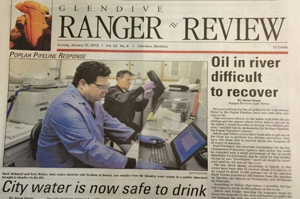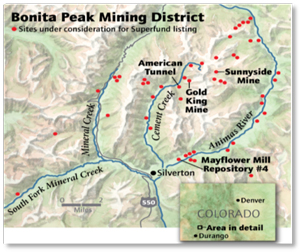Explosions, fires, chemical leaks, train derailments, hurricanes: they not only threaten public safety and security, but they can quickly turn into environmental nightmares if they aren’t expertly addressed right away. From responding to life-threatening wildfires in California to anthrax removal at the US Capitol and cleaning up toxics in the aftermath of Hurricane Katrina, TechLaw’s Emergency Response and Counterterrorism team members have a broad range of experience responding rapidly to a wide range of emergency situations—particularly those involving oil, chemicals, explosives and other pollutants.
Our professionals have long supported the US EPA’s emergency and terrorism response programs, participating in more than 350 response activities, such as chemical releases, natural disasters, removal/remediation actions, containment, and oil spills into soil and waterways. We have also conducted more than 100 removal assessments, 50 removal/remediation actions, 200 site inspections, and more than 500 independent sampling investigations, including investigations for chemical warfare material (CWM) and Munitions and Explosives of Concern (MEC). We provide First Responder Training support to EPA and other federal and state agencies, covering topics such as hazardous materials awareness, mass decontamination response, and virtually all major environmental laws, including CERCLA, SARA, RCRA, TSCA, CAA, and CWA.
Our response work also includes extensive experience performing Brownfields-related research, assessment and sampling to help find new life for formerly polluted properties. We have completed more than 1,200 Brownfields and associated assessments in 24 states for private, federal, tribal and municipal clients, providing services including: market feasibility studies, economic assessments, environmental assessments, community outreach support, grant writing, and oversight.
Crude Oil Pipeline Break
Yellowstone River, Glendive, MT
 In 2015, a pipeline underneath the Yellowstone River ruptured and discharged an estimated 750 barrels of crude oil into the river, which is the drinking water supply for the nearby town of Glendive. Within a few hours, TechLaw’s specially trained and equipped mobile laboratory chemists and scientific professionals—working under TechLaw’s Environmental Services Assistance Team (ESAT) contract with U.S. EPA Region 8—deployed and operated an EPA mobile laboratory to the site from Denver, eight hours away. The Team provided urgent mobile laboratory support onsite, analyzing hundreds of water samples for harmful chemicals. Results were supplied to authorities within hours of the sample having been taken, rather than waiting days for a non-mobile laboratory to provide results. The quick response and round-the-clock work was essential to getting the drinking water system useable in less than two weeks—much shorter than the eight weeks that was originally anticipated. TechLaw also provided daily onsite monitoring of water intakes and the river for months afterward to help ensure a continuing safe water supply.
In 2015, a pipeline underneath the Yellowstone River ruptured and discharged an estimated 750 barrels of crude oil into the river, which is the drinking water supply for the nearby town of Glendive. Within a few hours, TechLaw’s specially trained and equipped mobile laboratory chemists and scientific professionals—working under TechLaw’s Environmental Services Assistance Team (ESAT) contract with U.S. EPA Region 8—deployed and operated an EPA mobile laboratory to the site from Denver, eight hours away. The Team provided urgent mobile laboratory support onsite, analyzing hundreds of water samples for harmful chemicals. Results were supplied to authorities within hours of the sample having been taken, rather than waiting days for a non-mobile laboratory to provide results. The quick response and round-the-clock work was essential to getting the drinking water system useable in less than two weeks—much shorter than the eight weeks that was originally anticipated. TechLaw also provided daily onsite monitoring of water intakes and the river for months afterward to help ensure a continuing safe water supply.
Bonita Peak Mining District/Gold King Mine
Silverton, San Juan County, CO
 When the Gold King Mine was breached in 2015, spilling toxic metals into the Animas River watershed, TechLaw was instrumental in gathering and assembling a comprehensive assessment package across 19 different mine sites and 32 individual sources to support Bonita Peak Mining District National Priority List (NPL) scoring. Our work included:
When the Gold King Mine was breached in 2015, spilling toxic metals into the Animas River watershed, TechLaw was instrumental in gathering and assembling a comprehensive assessment package across 19 different mine sites and 32 individual sources to support Bonita Peak Mining District National Priority List (NPL) scoring. Our work included:
- Developing site-specific Health and Safety Plan (HASP) for field oversight, Sampling and Analysis Plans (SAPs) and Quality Assurance Project Plans (QAPPs).
- Sampling soil, sediment, surface water and groundwater for CERCLA site assessment in accordance with USEPA protocol in order to generate legally defensible data for characterizing site sources and documenting targets as necessary for any pathways of concern.
- Conducting file reviews, meeting support, site reconnaissance, work plan and report development, laboratory coordination, field sampling and data review.
- Evaluating historical documents and data to prepare Quickscore 3.1 scoresheets.
- Preparing technical reports to support CERCLA site assessment activities. AlterEcho also attends technical meetings.
Throughout this highly scrutinized process, TechLaw coordinated with a large team from USEPA Region 8 and USEPA Headquarters, the Colorado Department of Public Health and the Environment, the Bureau of Land Management (BLM), the US Geological Survey, the US Fish and Wildlife Service, site stakeholders, and other contractors.
Hurricanes Katrina and Rita
U.S. Gulf Coast
 TechLaw employees from across the country were among the first disaster responders to Hurricanes Katrina and Rita, which hit the Gulf Coast within weeks of each other in 2005. They joined in around-the-clock emergency response, concentrating on controlling numerous environmental hazards and health risks for several weeks after the devastating hurricanes. They also assisted in search and rescue operations via boat, rescuing stranded evacuees. Other response activities include:
TechLaw employees from across the country were among the first disaster responders to Hurricanes Katrina and Rita, which hit the Gulf Coast within weeks of each other in 2005. They joined in around-the-clock emergency response, concentrating on controlling numerous environmental hazards and health risks for several weeks after the devastating hurricanes. They also assisted in search and rescue operations via boat, rescuing stranded evacuees. Other response activities include:
- Providing oversight and management of disaster Situation Units set up to oversee and report on on-the-ground activities.
- Performing ground, water and air quality testing to determine levels of contamination and identify environmental risks.
- Conducting site inspections of communities and facilities to assess environmental damage suffered from the storms.
- Assisting in developing a strategy to mitigate human health and ecological risks through removal of contaminants from 2,500 facilities.
- Developing removal plans for toxic waste, including: hazardous chemicals, fuel and propane spills and mercury exposure. We also provided GIS support, mapping the assessment and sampling locations.
